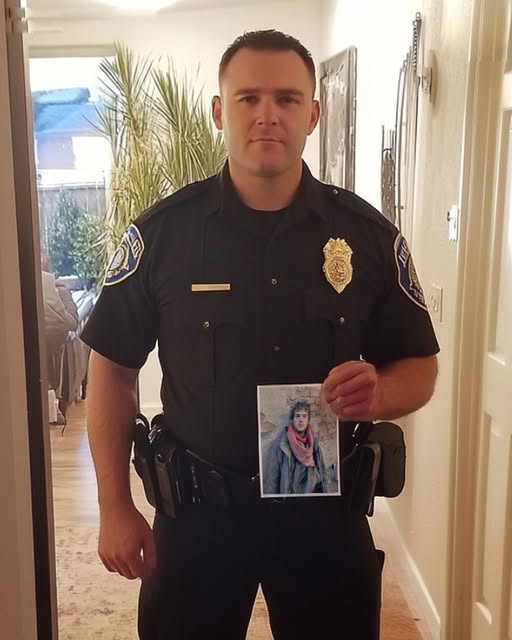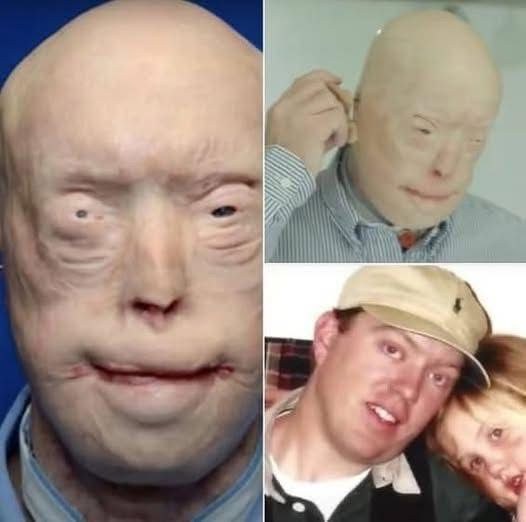It was one of those bitter January afternoons when the cold doesn’t just sting your face — it settles into your bones. The sky was a washed-out gray, the kind of winter light that made the whole city feel muted. I had finished a long list of errands — groceries, post office, dry cleaning — and was walking home when I felt an odd pull toward St. Peter’s Church.
I wasn’t particularly religious, but sometimes that quiet space helped me think. I didn’t know it yet, but stepping through those gates that day would set off a chain of events that would come back to me a decade later — in the most unexpected way imaginable.
At the bottom of the church steps sat a man. Young, maybe late twenties, early thirties. He was hunched forward, clutching a pair of battered shoes tied together with twine. His coat was torn at the sleeves, his fingers red and cracked from the cold. He looked like he hadn’t slept indoors for a long time.
For a moment, I hesitated. People passed him without looking. A few crossed the street. I almost did the same. But when he lifted his head, our eyes met — dark, tired, yet filled with something fragile and raw. I couldn’t walk away.
I knelt beside him, ignoring the sting of the cold stone beneath my knees. “Hi,” I said gently. “Need some help with those shoes?”
He blinked as if startled that anyone had spoken to him. “You don’t have to,” he murmured.
“I want to,” I replied, my voice firmer than I felt. I untied the string, adjusted the worn leather, and retied them so they’d at least hold together. My fingers were freezing, but I kept going until they fit better.
When I finished, I took off my gray knit scarf — my favorite one, a gift from my husband Ben — and wrapped it around his neck.
He started to protest. “Ma’am, I—”
“Please,” I interrupted. “It’s too cold for pride.”
I hurried across the street to a small café and came back with a cup of hot tea and a bowl of soup. He took them with trembling hands, looking at me as though I were someone out of a dream.
Before leaving, I tore a page from my notebook and scribbled down my address. “If you ever need help, or even just someone to talk to,” I said, handing him the note, “you can find me here.”
He stared at it, confused. “Why are you doing this?” he asked softly.
“Because everyone needs someone,” I said. “And today, it’s your turn.”
He didn’t speak — just nodded, his eyes shining with tears that froze on his lashes. I smiled, turned away, and walked home. I never even asked his name.
Time moved on. Ten years can pass quietly when you’re busy living. Ben and I built a good life. Our daughter, Emily, was finishing high school, and our son, Caleb, was fourteen — loud, funny, always hungry. We had our share of bills, birthdays, and arguments about curfews. The memory of that afternoon at St. Peter’s faded into the background, tucked away with all the other small kindnesses you do and forget.
Then, one Tuesday evening, a knock came at the door.
When I opened it, a uniformed police officer stood on the porch. My heart jumped. My first thought was my children. “Is everything alright?” I asked quickly.
“Good evening, ma’am,” he said politely. “Are you Anna?”
“Yes,” I said, gripping the doorframe.
He reached into his jacket and pulled out a small photograph. “Do you recognize this man?”
The picture was grainy, but my breath caught. The torn coat. The shoes tied with twine. The scarf — my scarf.
“Yes,” I whispered. “I helped him years ago. Why are you asking?”
The officer smiled faintly. “Because, ma’am,” he said, “that man is me.”
For a moment, I couldn’t speak. I just stared at him — the neat uniform, the clear eyes, the steady voice. “You’re joking,” I said finally.
He shook his head. “No, ma’am. I never forgot you.”
He stepped inside and told me his story.
“That day, outside the church, I was at rock bottom,” he said. “I’d been homeless for almost two years. I’d lost my job, my apartment, and myself. I’d stopped believing there was a way back. But you sat down beside me. You didn’t treat me like I was nothing.”
He explained that after our encounter, he went into the church and spoke with the pastor. Using the address I’d written, the pastor helped him reconnect with an aunt who thought he’d died. She took him in, helped him get clean, and encouraged him to start fresh.
“It wasn’t easy,” he said, his voice thick with emotion. “But every time I wanted to give up, I looked at that scrap of paper and your scarf. They reminded me someone believed I was worth saving.”
He worked odd jobs, enrolled in a rehabilitation program, and eventually applied to the police academy. He had now been an officer for six years.
“I’ve spent a long time trying to find you,” he said, smiling through misty eyes. “I wanted to tell you that your kindness changed everything.”
I felt tears spill over as I listened. “I didn’t do much,” I said quietly.
He shook his head. “You did more than you’ll ever know. You saw me when I couldn’t even see myself.”
Without thinking, I stepped forward and hugged him. It wasn’t the kind of polite embrace you give a stranger — it was full, fierce, and grateful.
When we finally pulled apart, I asked, “Do you still have the scarf?”
He laughed. “I do. It’s in a drawer at home. I’ll never part with it.”
That night, after he left, I sat with Ben and told him the whole story. He listened in silence, then took my hand. “You gave that man a second chance,” he said softly.
I smiled through my tears. “No,” I said. “He gave it to himself. I just reminded him he could.”
Later, I found myself staring at the frost gathering on the window. I thought about all the people we pass every day — faces we never see, stories we never hear. I thought about how close he might have been to giving up that day, and how a scarf, a meal, and a few kind words somehow rerouted an entire life.
We often underestimate the power of compassion — not the grand, headline-making kind, but the small, quiet gestures no one else sees. A few minutes of kindness can become a turning point in someone else’s story.
That night, I prayed for him — the officer, once the man on the church steps — and for every other soul fighting battles no one can see. Because sometimes, the greatest miracles aren’t loud or dramatic. Sometimes, they begin with something as simple as sitting down beside a stranger and saying, “You’re not alone.”
And in a world that moves too fast, that kind of kindness might be the most extraordinary thing of all.




